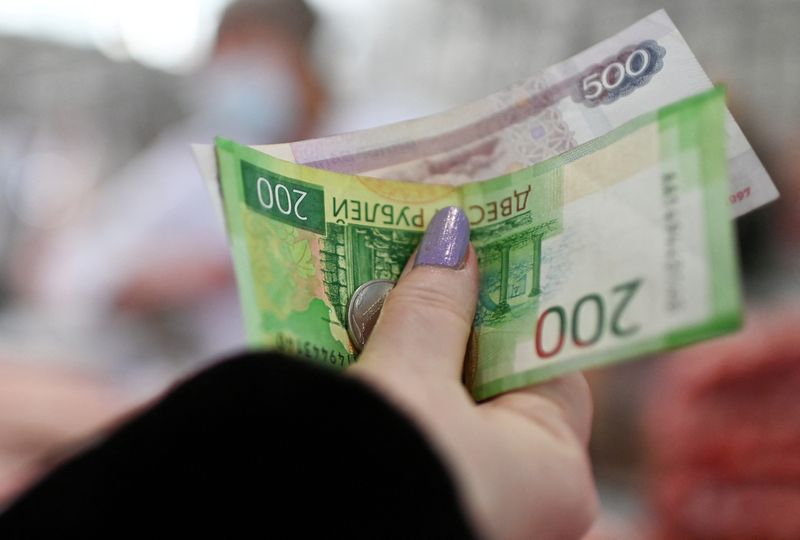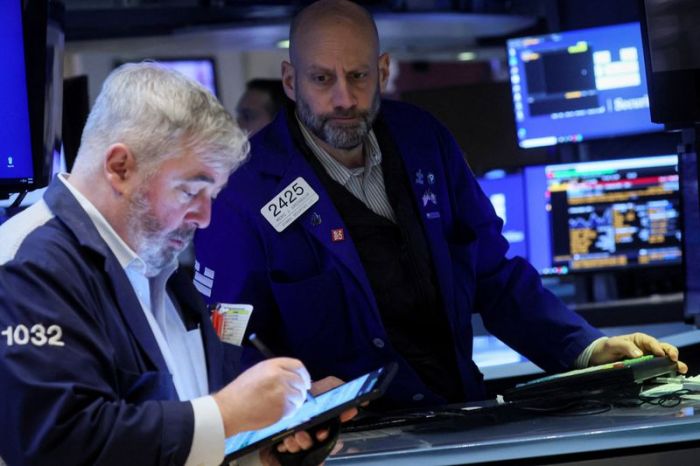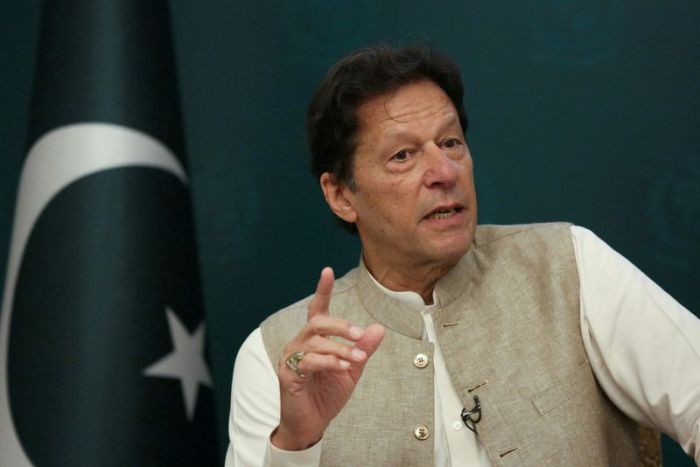(Reuters) -The Russian rouble gained some lost ground on Tuesday in thin offshore trade after heavy losses triggered by Russia’s invasion of Ukraine, which have made it the worst-performing emerging market currency this year by far.
The local market was closed for a public holiday, with currency trading expected to resume on Wednesday.
The rouble has fallen more than 40% against the dollar since the start of the year, with losses sharply accelerating after Russia invaded Ukraine on Feb. 24, a move that sparked sweeping sanctions from governments around the world.
“The outlook for the rouble is highly uncertain at the moment,” said William Jackson, chief emerging markets economist at Capital Economics.
“That said, if sanctions on Russia’s energy sector are expanded, it is likely to depreciate further.”
U.S. President Joe Biden on Tuesday announced a ban on Russian oil and other energy imports, and the barrel of oil hit its highest price this week since mid 2008.
Curbs on Russia and on its lenders, companies and key individuals, as well as counter measures from Moscow, have made it increasingly difficult for investors to trade Russian assets.
On the EBS trading platform, the rouble was recently trading at 127 per dollar, or up more than 6% on the day. It was indicated as far as 134 on Refinitiv, with volumes down 99% compared to the February daily average.
The U.S. oil ban kept pressure on Russian leader Vladimir Putin to halt his devastating assault on Ukraine, but an effort to evacuate civilians from the besieged port city of Mariupol failed.
Russia calls its actions in Ukraine a “special operation.”
Stock trading on the Moscow Exchange was restricted all last week by order of the central bank. The bank said stock market trading will remain largely suspended on Wednesday, keeping only a limited range of operations.
The foreign currency market will reopen at 10 a.m. (0700 GMT), forgoing the early morning session.
Russia will be excluded from all of JPMorgan’s fixed income indexes on March 31, the bank said on Monday, joining rival index providers that excluded Russian securities after Russia’s invasion of Ukraine.
An investment firm that held some of Russian energy firm Gazprom’s $1.3 billion bond that matured on Monday said it received full payment in U.S. dollars. Investors had been unsure whether they would be paid after Russia put restrictions on payments to foreigners holding its securities.
For GRAPHIC on emerging market FX performance in 2022, see http://tmsnrt.rs/2egbfVh
(Reporting by Reuters; Editing by Alison Williams, Edmund Blair and Sandra Maler)

























